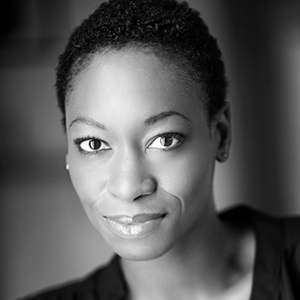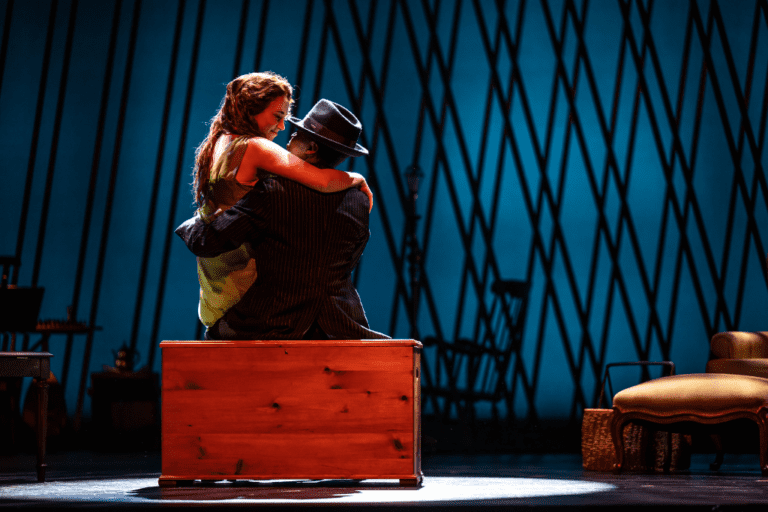The Places I Call Home
The call to move east happened almost on cue. I had been working at Bard on the Beach, Vancouver’s Shakespeare festival, and had fallen in love with Shakespeare: the language, its poetry and its challenge. But, overall, theatre work was sporadic. As a young black woman, I was in a city still green in its views on diversity. It needed to be tended to—nurtured—and what I needed was to be in a city whose diversity was already developed.
* * *
That was six years ago. Today, I’m home again. It’s early November and I’m back from Stratford, living in Vancouver with my mom. In the mornings I pack my lunch and race to the bus stop in our East Vancouver neighbourhood. I get on the 9:07 a.m. that brings me to the SkyTrain, get off at Commercial Drive, and walk to my final destination: Progress Lab, a space where four of Vancouver’s leading theatre companies—Boca del Lupo, Rumble Theatre, Neworld Theatre, and Electric Company Theatre—come together to create.

Matthew G. Brown as Sea Captain and Sarah Afful as Viola in Twelfth Night. Photo by Cylla von Tiedemann
The air is crisp and fresh, and the mountains—in full glorious view, commanding respect and reminding you to ground yourself—hug the city. I pass the east side’s homeless, sleeping in front of Italian restaurants under mounds of clothes, shielding themselves from the wet sticky wind, the kind that goes straight through to the bones. I pass hipster coffee shops and take in the faint aroma of marijuana. Every now and then I see someone I know from childhood.
My desire to leave the city I had grown up in was born out of instinct. And although my desire was solid, my plan wasn’t. The first opportunity that revealed itself was a call to apply for an internship at Obsidian Theatre Company in Toronto—a city with a thriving scene diverse in its artists and mandates and companies, so much so that it was home to this black theatre company. This is what I was reaching for.

Sarah Afful, along with Vladimir Alexis, in Obsidian Theatre’s hang. Photo by Racheal McCaig
As I prepped for the Obsidian application, I received an email from my agency about auditioning for the Stratford Festival. Of course I had heard of Stratford, but I had never considered working there. Perhaps that was because, as a first-generation Canadian, I grew up dancing in my father’s Ghanaian drum troupe, dancing to our native Highlife music at the cultural gatherings as we ate fried fish and fufu; I didn’t grow up seeing English theatre and thinking about Shakespeare.
Learning the monologues for my audition was a stretching of my soul, and I experienced the emotional reaches of life and death, love and longing as I worked. I began to dream about making space for myself in Shakespeare’s plays, and I began to open up to the idea that going east would start with Stratford. I got a callback for the conservatory program and booked the job. A few months later, I was shipping my life to Stratford, with the knowledge that Toronto was around the corner from me if I needed anything.
* * *
It’s my lunch break at Progress Lab, and I am looking around in wonder at the great people I work with. The vibe is chill and the mandate is fail, fail, fail, make mistakes, and, most importantly, have fun. Some people in the room are old friends, some are mentors, and some are award-winning creators. We share food and coffee, and chat about the state of theatre and how we might hit up the mountain for a bike ride or a hike on our day off. On the one hand this feels like the dream, to be in a creative space, go for runs by the ocean, have fresh sushi for lunch and dinner with my mom in the home I grew up in. On the other hand, Ontario has harnessed my talent, given me the opportunity to work with international theatre creators, and taught me to bounce back fast from criticism.
During my BFA at the University of British Columbia, I went to a workshop on the tools needed to be a theatre actor. The speaker was an independent artist and talked from her own experience as a middle-aged, white female, on how she created her own opportunities in Vancouver. It was a lot of sacrifice for little money in the city, but she loved what she did despite it all. She found joy in building a scene from the ground up.

Sarah Afful in A Midsummer Night’s Dream: A Chamber Play. Photo by Michael Cooper
Today in Vancouver I see young black theatre artists also building up the city with their work. I see them killing it: selling out shows because the acting is superb and the stories engaging and powerful. It’s hard work—it’s acting, producing, writing, educating, spearheading, protecting, publicizing, fundraising. It takes time, but it’s important. And back when I was in university, listening to the speaker, I knew that wasn’t my path. What I wanted was to act.
Stratford gave me autonomy, focus, creative growth, and the time to immerse myself in work that challenged me. I was always on the cusp of not knowing what I was doing and worked through that thrilling doubt, and, for the first time since I had become an actor, I finally felt like one. I worked incessantly on plays. It was exciting. I watched myself walk into artistic and personal challenges—taking on parts that were large or outside of my lived experience, or sometimes too close to home—and allow the work to expand me.
* * *
I am finishing up my day at Progress Lab. I leave at 6 p.m. and it’s dark out. I look at the lights on the mountains and I can smell the ocean. People walk slowly down Commercial Drive, no one in a rush to get home. I pop over to the bank and, just as the sphinx guards the pyramid, a man stands by the entry with joint in his mouth. I chuckle to myself. I love this city. I hope to be back soon.









Comments